The Transat: Multi50 Podium Complete
Published on May 19th, 2016
(May 19, 2016; Day 18) – French skipper Pierre Antoine crossed The Transat bakerly finish line at Sandy Hook off New York in the early hours of this morning, taking third place and completing the Multi50 podium aboard his trimaran Olmix.
Passing under the Verrazano Bridge on the Hudson River to arrive at Brooklyn Bridge Park just before sunrise, Antoine celebrated his third place with an impressive G.H MUMM splash with his waiting friends and family against the twinkling Manhattan skyline.
On his arrival in the city, Antoine said: “This is the first time I have sailed into New York and to arrive in front of Manhattan is an amazing view. You only have to look at the impressive skyline to realise that New York is a special end to the race.”
Antoine crossed the finish line at 04:59 BST after 16 days, 14 hours, 29 minutes and 23 seconds at sea, travelling at an average speed of 9.34 knots over 3,721nm of open Atlantic ocean. He arrived in New York four days, seven hours, nine minutes and six seconds behind winning Multi50 Gilles Lamiré aboard French Tech Rennes St Malo. Lalou Roucayrol took second place aboard Arkema.
With Olmix being a slightly older and heavier boat than the rest in the Multi50 fleet, Antoine explained that he opted for the classic north Atlantic route to play to his boat’s strengths, “I chose to take the more northerly route, because this boat is a bit older and a bit heavier that the other Multi50s, so not as fast in lighter winds as the others in our category,” he said.
“During the race we had to cross several different weather systems, but in between these systems there was generally no wind – I think we had three periods during the race where we had no wind for about five hours at a time.”
He continued, “These periods were very difficult for both the skippers and for the boats because you have no wind, but you have big waves and everything is moving and it’s very uncomfortable. It was also quite frustrating.
“When you were in a good position moving through the systems you were fast, but when you were between the systems you lost a lot of distance. You could also see the guys in the far south sailing downwind still moving fast and covering a lot of miles while we were stopped.”
With just a few hundred miles to go to the finish line, the ongoing battle for the third podium position between Antoine and his fellow Multi50 competitor Erik Nigon aboard Vers un Sans Monde Sida was intense. Going into the penultimate night of racing, Nigon just had the edge, with Antoine himself reporting that his friend and rival may have the upper hand come morning.
However, it was not to be for Nigon, and even damage to his boats daggerboard couldn’t stop Antoine as he sped away from his competitor, riding the winds of a building depression to take third place.
“The race with Erik was very tight,” the skipper explained. “I could have easily finished behind him. It was only because of the last weather system that I was able to pull ahead.”
Nigon arrived just four hours behind Antoine, crossing the finish line at 09:02:33 to finish in fourth place and conclude the Multi50 arrivals.
The next class expected on the Manhattan horizon is the Class40s, with Thibaut Vauchel Camus aboard Solidaires en Peloton-ARSEP still leading the charge with just 152nm left to race.
The first Class 40 is expected to arrive in New York City on Friday.
Event website – Tracker – Facebook
About The Transat
Twenty-five boats set sail May 2 2016 on one of the great races in solo sailing, the 3,050-nautical mile passage across the north Atlantic from Plymouth to New York. Alongside 24 competing skippers is a one-off entry by the French racing legend Loick Peyron who is sailing Eric Tabarly’s 44ft wooden ketch Pen Duick II in the same trim as she was when Tabarly raced her to victory in The Transat (then called the OSTAR) in 1964.
The OSTAR (Observer Singlehanded Trans-Atlantic Race) was created in 1960 by a handful of pioneering sailors. The race was organised every four years by the Royal Western Yacht Club (RWYC) from 1960 through to the 2000 event, albeit with a lot of involvement from the French event organiser Pen Duick in the 90s, in order to cater for the demands of the professional campaigns that dominated the event.
After the 2000 edition, OC Sport stepped in to develop the event and acquired the rights to the professional part. OC Sport organised The Transat in 2004 and 2008, the 2012 edition was deferred at the request of IMOCA (the largest competing class).
The RWYC continues to organise a solo transatlantic race for Corinthian and non-professional sailors that is still known as the (O)STAR,. This race usually falls a year after the professional big boat race i.e. 2005, 2009, 2013, 2017. Both the amateur Yacht Club event and The Transat have the right to link to the history of the original race created in 1960, and to the rich history it has produced.
The first race was competed by just a handful of pioneering sailors including Francis Chichester and Blondie Hasler who coined the phrase: “One man, one boat, the ocean.” There has been tragedy, dramatic rescues and exceptional drama since the race began in 1960. Over time The Transat, as it is known today, has evolved and now serves the professional end of offshore sailing. But there are few modern day races that can reflect on such a long and outstanding history.
Monohull IMOCA 60 record: 12 days, 11 hours and 45 minutes set by Loick Peyron (FRA) on board Gitana in 2008. Multihull 60ft record: 8 days, 8 hours, 29 minutes set by Michel Desjoyeaux (FRA) on board Géant in 2004.
Source: The Transat




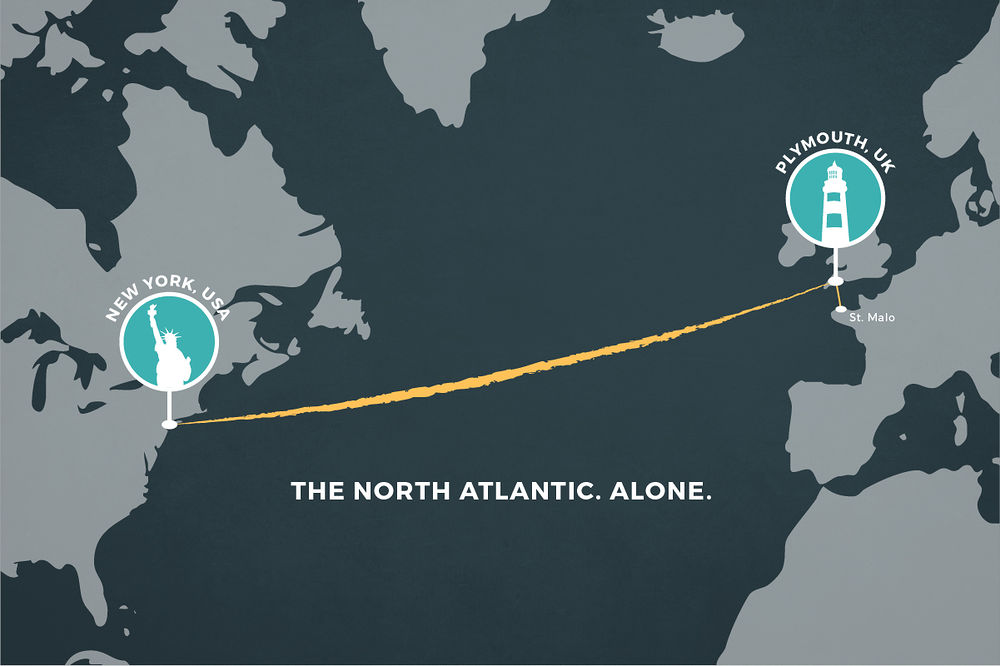

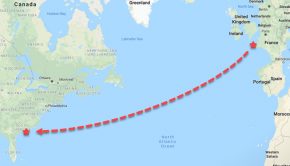
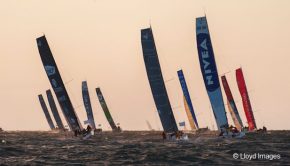
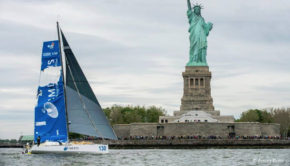
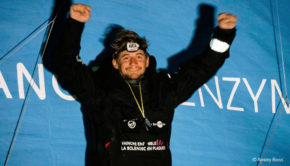
 We’ll keep your information safe.
We’ll keep your information safe.